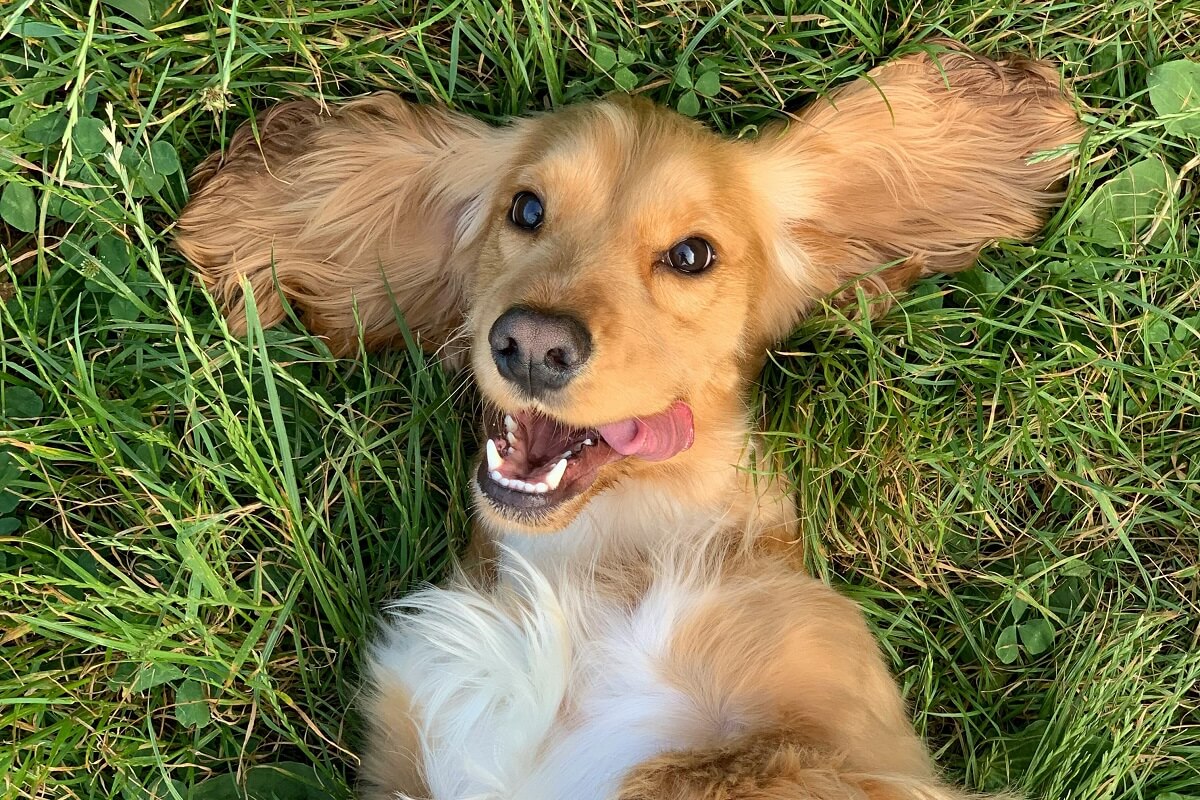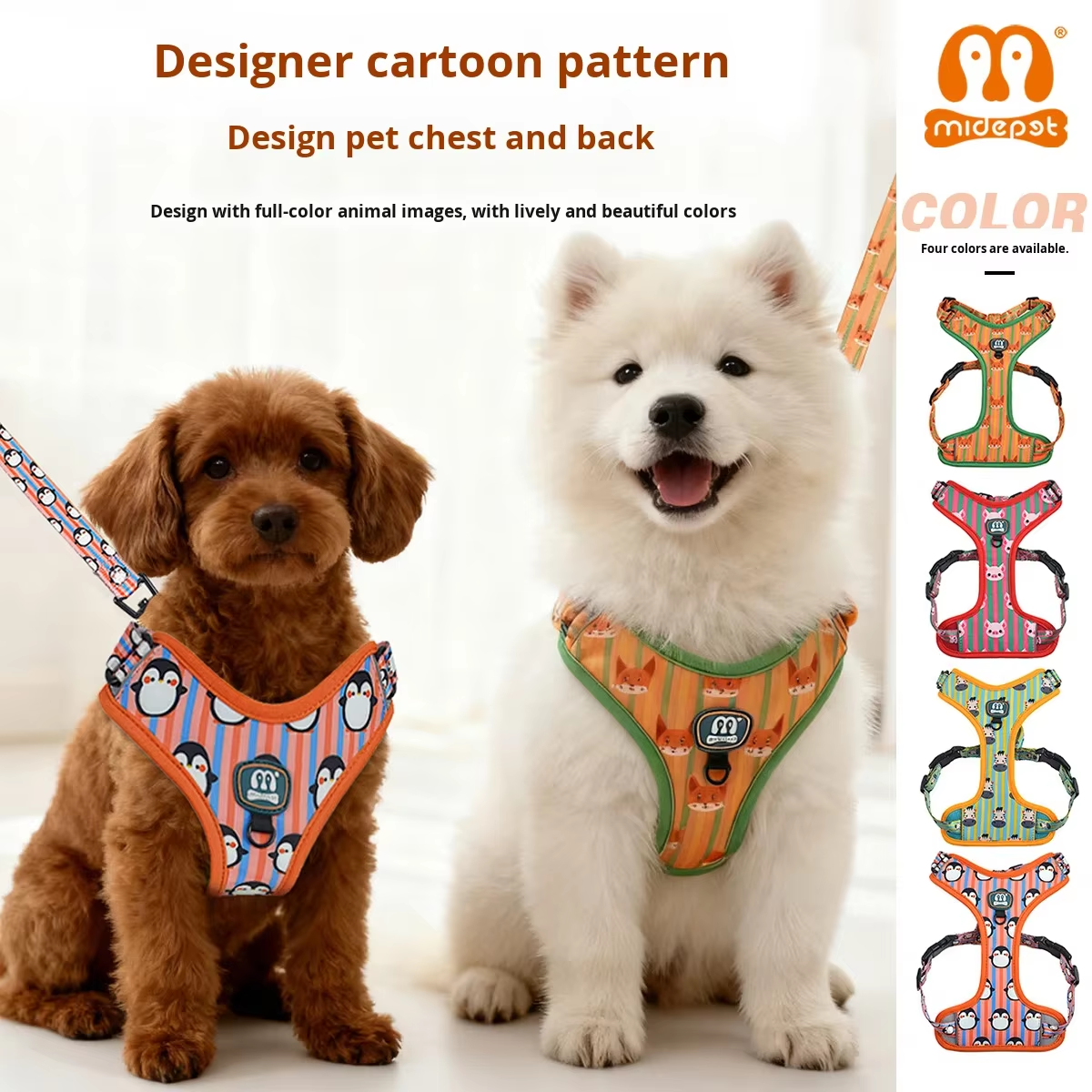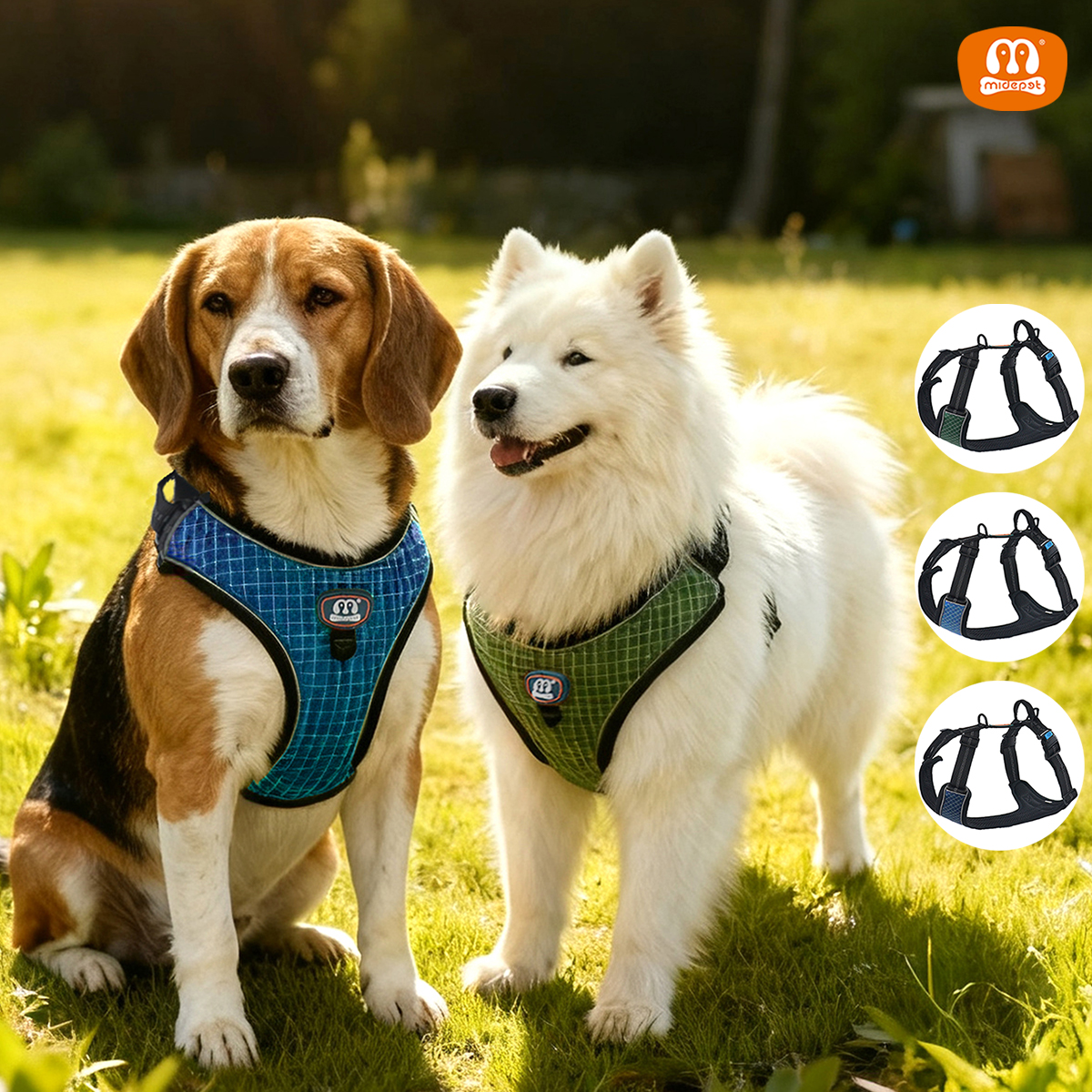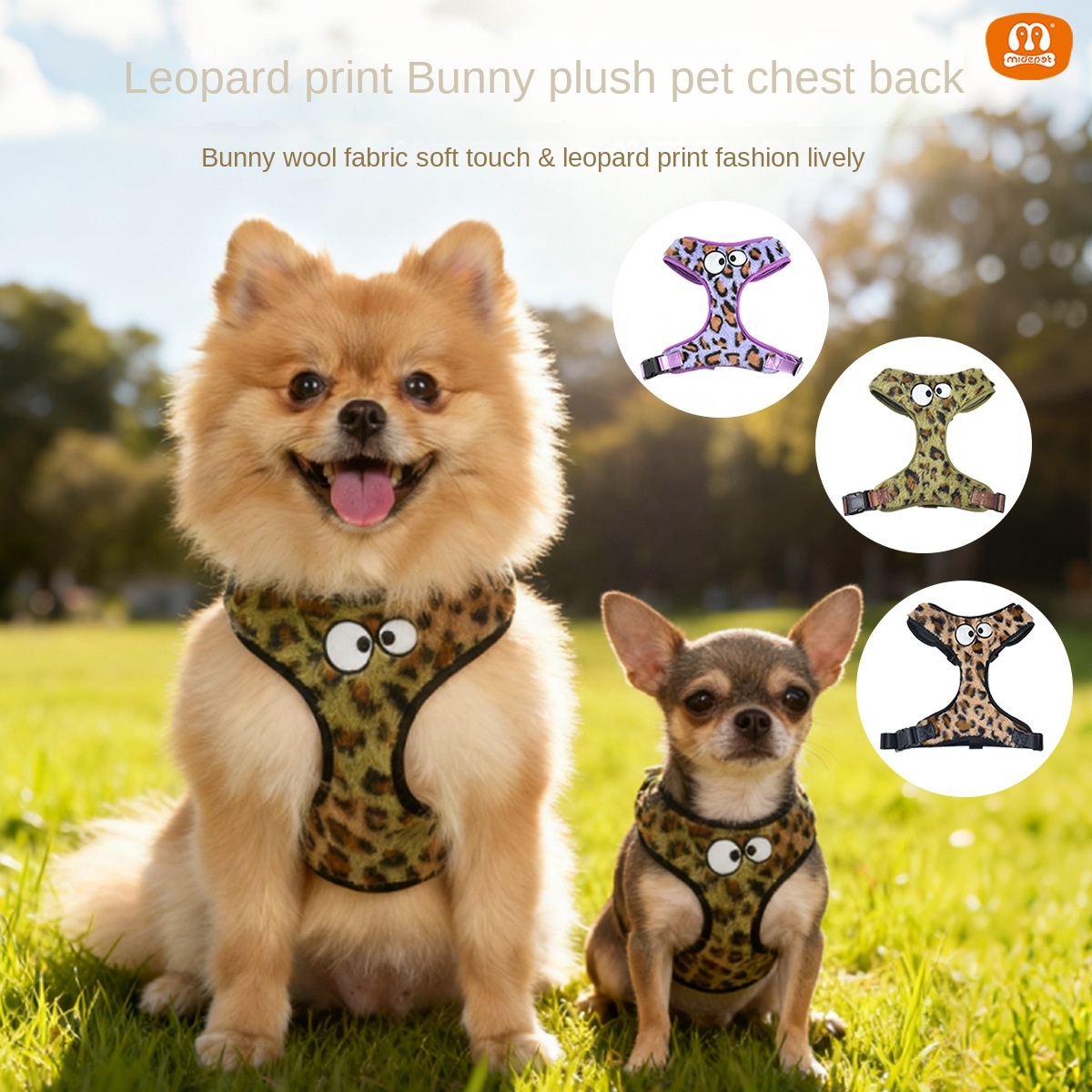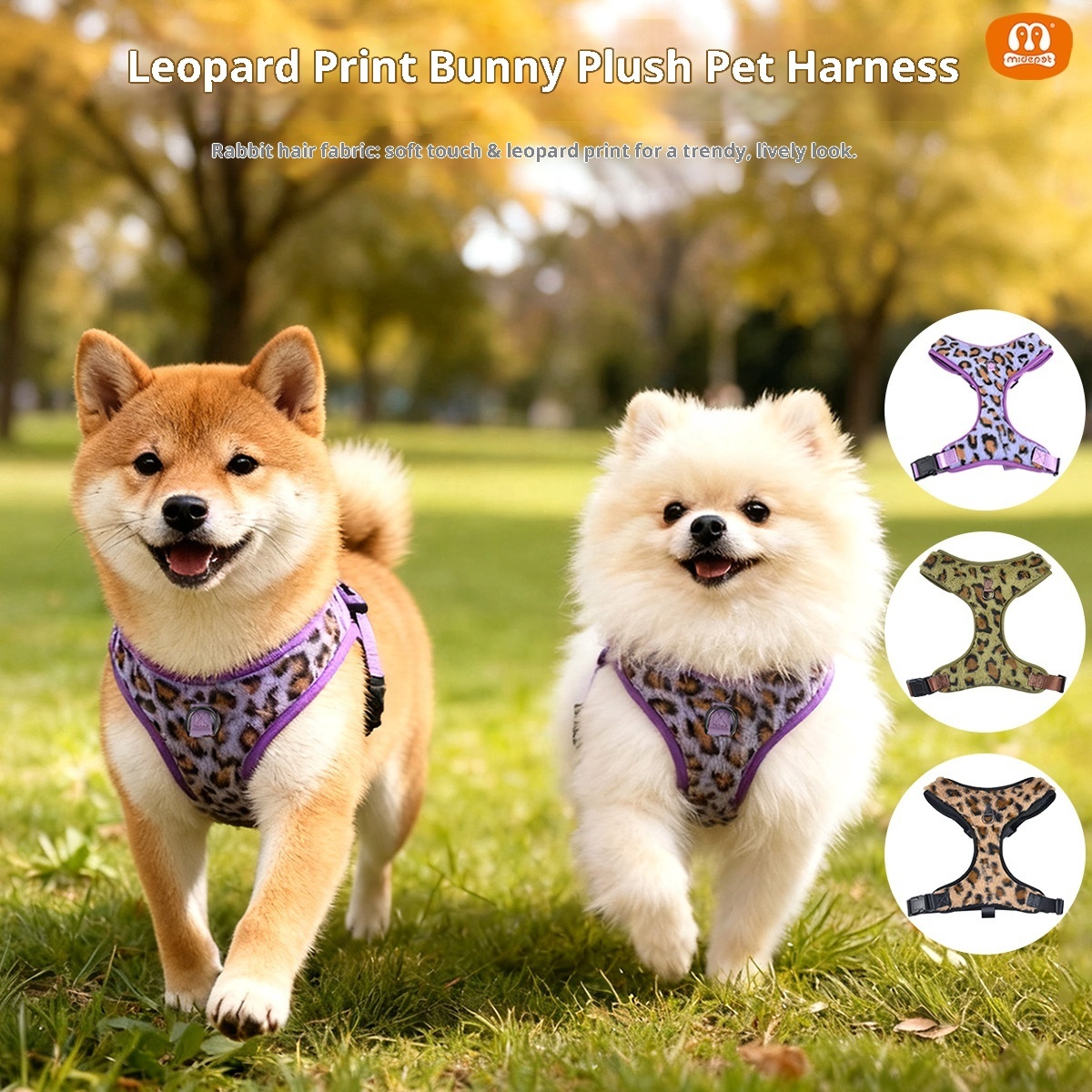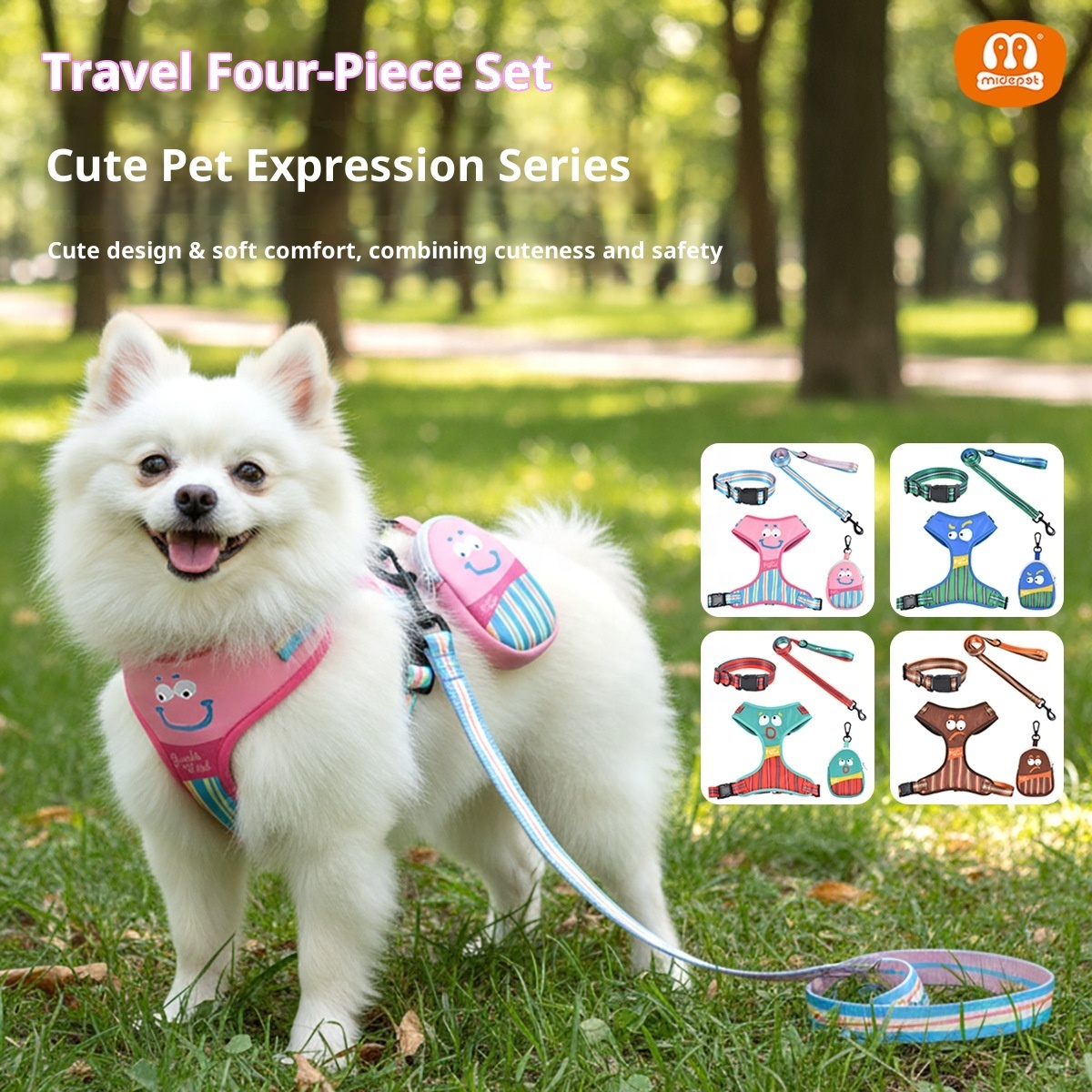Why Do Dogs Lick Your Face
Why Do Dogs Lick Your Face?
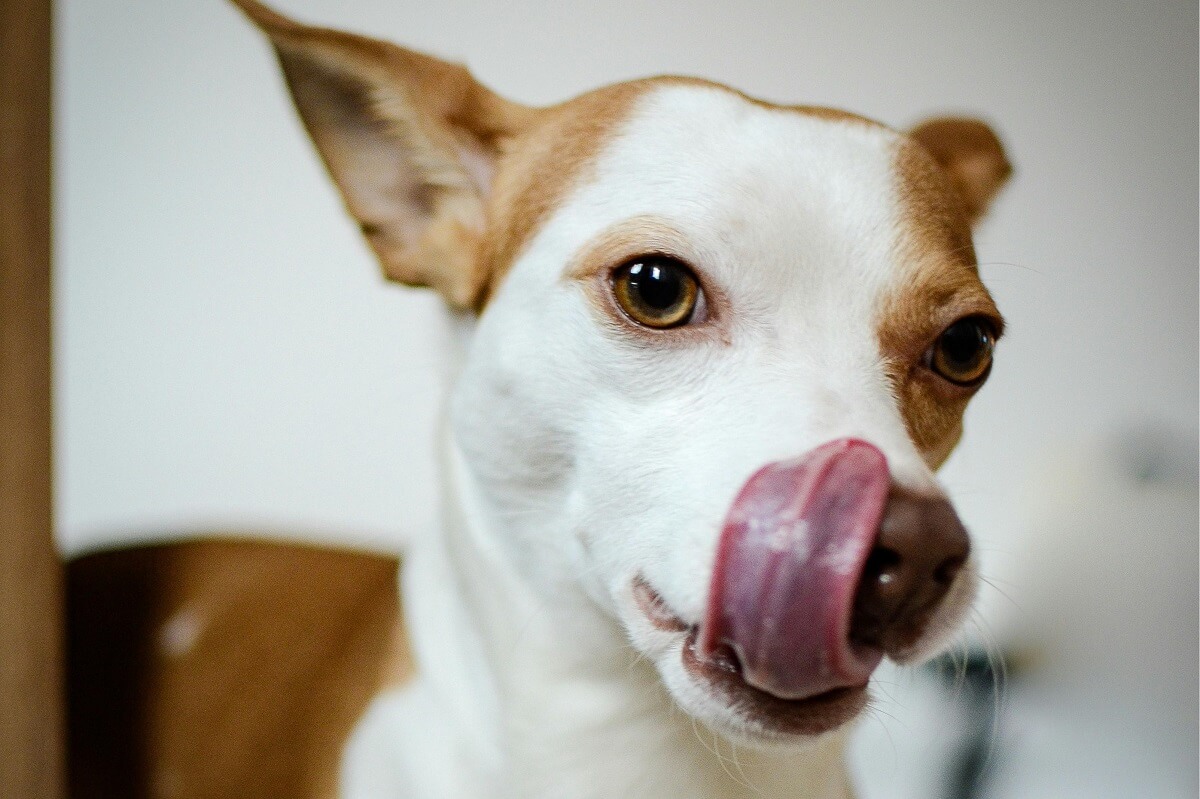
Dog licking is a very common behavior, experienced by almost every dog owner. It’s not just a simple physiological reaction; there are various emotional and instinctual motives behind it. So, why do dogs lick you? More specifically, why do dogs lick your face? Let’s delve into these questions one by one.
Part One: General Reasons Dogs Lick You
Dogs lick you for a variety of instinctual and emotional reasons. They use licking to express affection, seek attention, or show submission. For dogs, licking is a behavior developed from a young age, and they communicate with other dogs and humans in this way. In a social group, dogs lick each other to establish bonds or express friendliness, and when they do this with humans, they convey a similar message.
Expressing Affection: Licking is a way for dogs to show love and care for their owners.
Communication and Attention-Seeking: Dogs may lick you to attract your attention, especially when they feel bored or need interaction.
Showing Submission: Licking can also indicate submission, particularly when dogs view their owner as the leader of the pack.
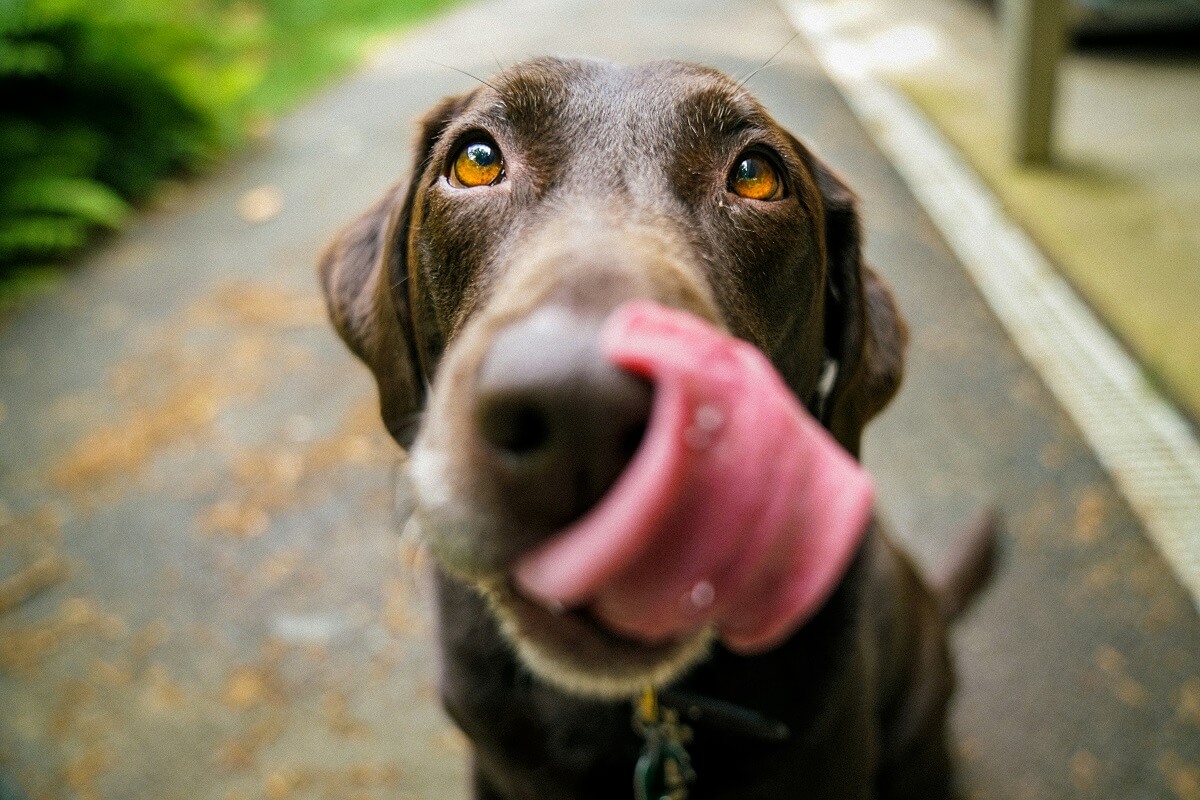
Part Two: Why Do Dogs Particularly Like to Lick Faces?
Dogs lick faces to establish emotional connections, seek salt, or express submission. By licking your face, dogs forge a close bond with their owners. The face is rich in expressive changes and scents, making it one of the most accessible areas for dogs to reach. Licking the face also allows them to taste the salt or food residue on the skin.
Emotional Bonding: Dogs licking their owner's face strengthens the intimacy between them; this behavior is akin to "doggy kisses."
Food or Salt: Dogs naturally enjoy licking the salt or food remnants found on human skin.
Expressing Submission: Licking the face is a common way to show submission, especially when dogs regard their owners as pack leaders.
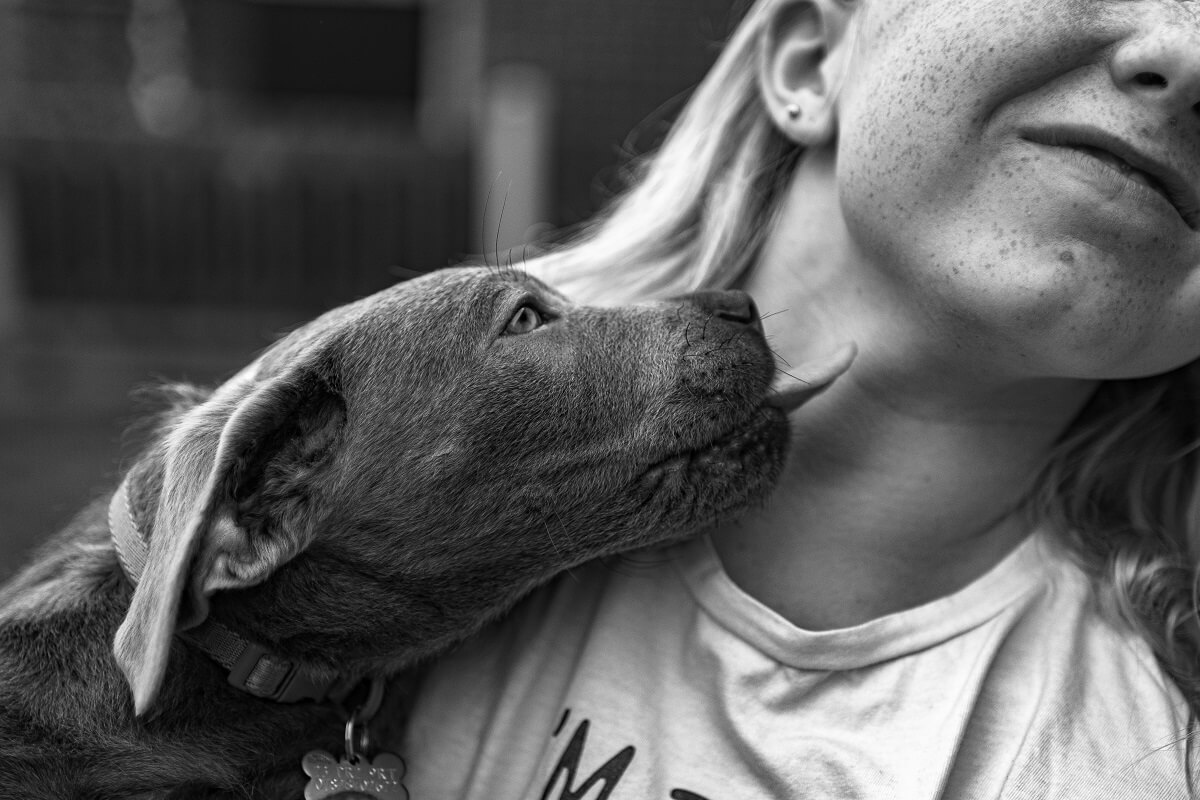
Part Three: Why Does My Dog Lick My Eyes?
Dogs lick eyes due to the salty taste of tears and their instinct to comfort their owners. Dogs have an incredibly sensitive sense of smell and can detect the salt in tears, which is why they may lick your eyes, especially if they sense you are upset.
For example:
Attraction to Saltiness: Tears contain salt, which is appealing to dogs.
Comforting Instinct: When their owner feels sad or down, dogs may lick sensitive areas like the eyes to provide comfort.
Part Four: Why Does My Dog Lick My Tears?
Dogs lick tears because they can sense emotional changes and try to comfort you. When you cry, dogs often lick your tears to express sympathy or offer comfort, as they can keenly detect their owner's emotional state.
Emotional Sensitivity: Dogs can sense when their owners are sad or experiencing emotional changes and lick tears to provide consolation.
Expressing Care: This behavior is also a way for dogs to convey their concern and love for you.
Part Five: Why Does My Dog Lick the Bed?
Dogs lick the bed because of residual scents or to self-soothe. With their keen sense of smell, dogs may be attracted to the lingering scents on the bed, or they may lick to self-soothe when they feel anxious.
Residual Scents: The bed may carry the owner’s scent, which can be very appealing to dogs.
Self-Soothing: Licking can help dogs relieve anxiety, particularly when they feel uneasy.
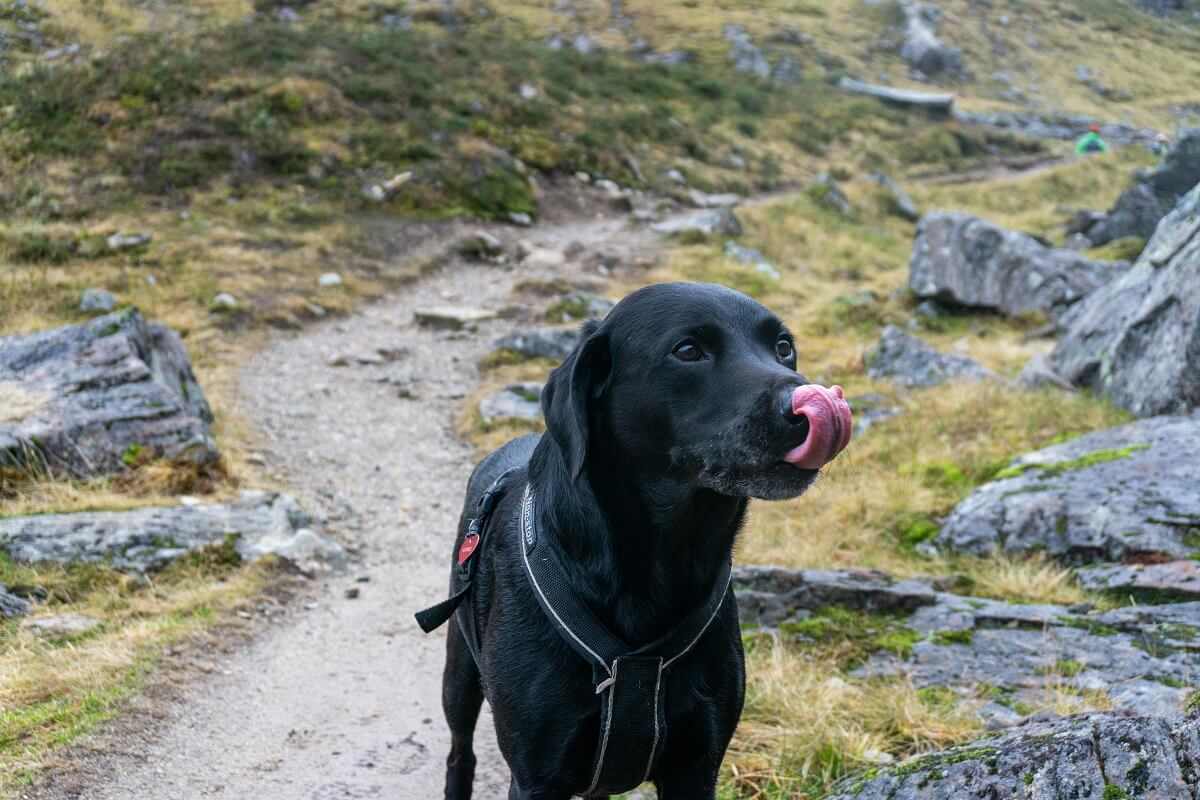
Part Six: What Does It Mean When Dogs Lick Your Face?
When dogs lick your face, they are expressing love, submission, or a desire to interact with you. This is one of the ways they demonstrate intimacy and trust.
Expressing Affection: Licking the face is one of the ways dogs show their feelings, similar to kissing.
Showing Submission: Dogs may lick your face to display respect and submission to their owners.
Seeking Interaction: When dogs want to interact with you or draw your attention, they may lick your face.
Frequently Asked Questions (FAQ)
Q1: Why does my dog lick my hands?
A1: Dogs often lick hands as a way to show affection and seek attention. They may also be attracted to scents or tastes left on your skin, like food residue.
Q2: Is it safe for dogs to lick my face?
A2: While dog saliva is generally not harmful, it's best to keep face-licking to a minimum to avoid potential transmission of bacteria or germs. Regularly cleaning your dog's mouth and ensuring they are healthy can help mitigate risks.
Q3: What should I do if my dog licks excessively?
A3: If your dog's licking behavior becomes excessive or bothersome, it’s essential to redirect their attention with toys or training. Establishing clear boundaries and providing mental stimulation can help reduce this behavior.
Q4: Can licking be a sign of anxiety in dogs?
A4: Yes, excessive licking can be a sign of anxiety or stress in dogs. If you notice this behavior alongside other signs of anxiety, such as whining or pacing, it may be helpful to consult a veterinarian or a dog behaviorist for guidance.
Q5: Do all dogs lick their owners?
A5: While most dogs exhibit licking behavior, the frequency and intensity can vary based on the dog’s personality, breed, and socialization. Some dogs may be more inclined to lick than others, and it’s essential to respect their individual boundaries.
Conclusion
The reasons dogs lick people are diverse, encompassing emotional expression and physiological needs. Whether it’s licking faces, eyes, or the bed, dogs use this behavior to establish deeper connections with their owners and convey their emotions. Understanding these behaviors can help us communicate and interact better with our dogs, allowing us to grasp their needs and feelings more effectively.
Tip: If your dog's licking behavior becomes excessive or uncomfortable, it may be beneficial to guide them towards reducing this behavior through appropriate training.


